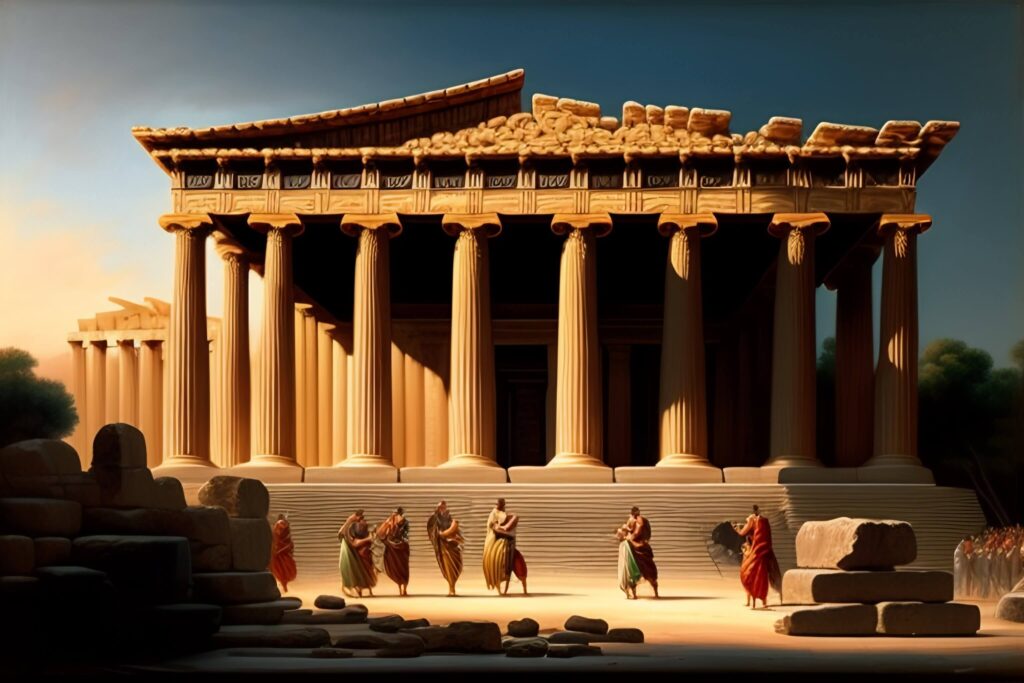Intro
Ontology is the heart of Western philosophy, dealing with the study of things and their existence. It’s the core field that even an outsider can understand. The truth of the ontological theory is that “there is something, and there is nothing that isn’t.” It’s more obvious than “1+1=2,” yet all the problems of ontology arise from this self-evident truth. It’s contradictory to say that things that don’t exist, yet the existence of nothing and the absence of nothing lead to strange conclusions. The world seems to disappear, leaving us asking, “What’s up with that?”
The concept of non-existence and nothingness is problematic in ontology. For instance, while unicorns and dragons don’t exist, the idea that they don’t exist presupposes that there’s such a thing as non-existence, which leads us to realize that the concept of non-existence is unstable. If, however, we say that specific unicorns and dragons don’t exist, then the problem disappears. Ontology is a complex field that raises profound questions about what exists and what doesn’t and how we should think about that.
Parmenides’ Ontology
The world is in a constant state of flux; creations spring up and go extinct like waves on a beach. Nothing that exists is permanent, and nothing that doesn’t exist can ever come to be. Without something to create or extinguish, there can be no such thing as creation or extinction. The natural order of things is constantly in motion, with a fluidity that makes it impossible to differentiate between natural phenomena and exercise. The very colors that surround us are a result of these natural processes; an apple is red because of the presence of red pigment and the absence of blue.
The passage of time is another reminder of the transience of existence. Time waits for no one, and once something has passed, it is gone forever. Even the mere concept of something that does not exist can have a profound impact on our perception of reality. In the end, everything fades away when there is nothing that does not exist, reminding us of the fleeting nature of our existence.
Parmenides, a wise man from Elia, has left people surprised with his enigmatic logic. Unlike sophists who lacked knowledge of the truth, Parmenides was well-versed in reality, born into a noble family and entrusted with drafting his hometown’s basic laws. Like Heraclitus, Parmenides lived in the same era and commanded respect for his intellect, but his ideas were different.
While Heraclitus believed in the true images of creation and extinction, Parmenides saw them as fake. It’s challenging to comprehend how a man responsible for drafting a city’s foundational laws came up with such a bold idea that goes against common sense. Perhaps he saw things differently, and his unique perspective led him to explore the world in a new way. Despite the many questions, Parmenides has contributed significantly to the world of philosophy, and his ideas continue to inspire and challenge thinkers to this day.

Parmenides’ Philosophy
Parmenides employs the allegory of Moses’ ascent to Mount Sinai to explain the divine nature of his own ascension. While Moses received the Ten Commandments, Parmenides meets a goddess who bestows upon him profound insights. Parmenides’ journey is not of his own accord, as he is driven in a carriage by the celestial beings who rule the day. When he reaches his destination, he is greeted with warmth and hospitality by the goddess.
Her first words are crucial to understanding Parmenides’ philosophy: “You must say that there is something, and you should think so because there is all or nothing.” This statement is a distillation of Parmenides’ philosophy, which holds that being and non-being are mutually exclusive concepts. Parmenides warns that any belief in change or plurality leads inevitably to contradiction and absurdity. Overall, Parmenides portrays his philosophical insights as being on par with Moses’ divine encounter, with his doctrines providing the basis for a consistent and robust worldview.
Parmenides’ strict command on the truth of “there is and there is nothing” was more stringent than the Ten Commandments. The first commandment binds Yahweh as the only entity “who is on his own” by prohibiting the involvement of other gods. However, the goddess’ orders were more severe as they denied anything but her command further, indicating a noteworthy level of jealousy.
The Ten Commandments recognized parents and neighbors, but the goddess ordered the denial of anything that doesn’t exist, which strengthens the severity of her command. While the Ten Commandments restrict the involvement of other gods in one’s life, the goddess takes it a step further and denies their existence entirely. It’s imperative to note that Yahweh’s commandments are to lead a virtuous life, while the goddess’ orders represent transitioning towards understanding the truth of existence. Thus, Parmenides’ commandment resonates as a critical principle for gaining insight into the true nature of existence.
The philosophical dilemma presented by Parmenides’ command that “It’s only about what you have!” and “Don’t think there’s anything you don’t have!” has troubled thinkers throughout history. The premise seems to contradict the natural world that we observe which is marked by constant creation, destruction, and change. How can we deny the existence of something that we can see and experience? To reconcile these seemingly opposing forces, philosophers have had to walk a narrow path.
Plato proposed a solution he called “father’s murder” which essentially means acknowledging that something is missing or incomplete. In this way, we can accept the reality of both existence and the ever-changing nature of the world around us. The challenge for philosophers and for all of us is to find the space where these two seemingly incompatible forces can coexist.






